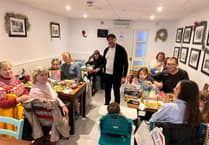Last week, to give it its full formal name, the Terminally Ill Adults (End of Life) Bill passed third reading in the House of Commons and has been sent to the House of Lords for its second reading there.
The Bill’s sponsor, Labour MP Kim Leadbeater, has suggested that most Lords are in favour, and it is will likely become law in 2029.
Or hopefully sooner.
We use the word ‘hopefully’ because for the terminally ill and those in the end-of-life stages, it cannot become law soon enough.
As one terminally ill patient commented to this publication: “why do we give animals a better ending that we give ourselves?” It is an existential question but one that, with the passing of this Bill through the Commons, has been answered with pragmatic measures and safeguards that protects medical professionals, those seeking the right to end their own lives in a dignified manner, and those who fear that the concept of assisted dying might somehow bring about their early demise.
We all face death, mostly knowing not the day nor the hour. But at least now those facing death can at least control the process should they so choose. And essentially, having this law in place – the sooner the better – allows that process to occur in a safeguard and measured manner.
As one terminally ill patient told us: “Choosing how you die is an absolute fundamental right. My final two years will be horrific. I will have seizures and could experience severe personality changes – it would be horrible to die angry, and I don’t want my child to see that… I like the idea of having a living wake where all your favourite people come – why would I want to miss that?”
The challenge now is to ensure that our Governments and health boards, along with those jurists who participate in panels on granting assisted dying, have the resources needed to adequately meet their onerous new responsibilities. Equally, those who labour in the difficult world of palliate care and resources, must be properly funded.
We all deserve to die with dignity, even if we choose the time and place of our passing, or not.





Comments
This article has no comments yet. Be the first to leave a comment.